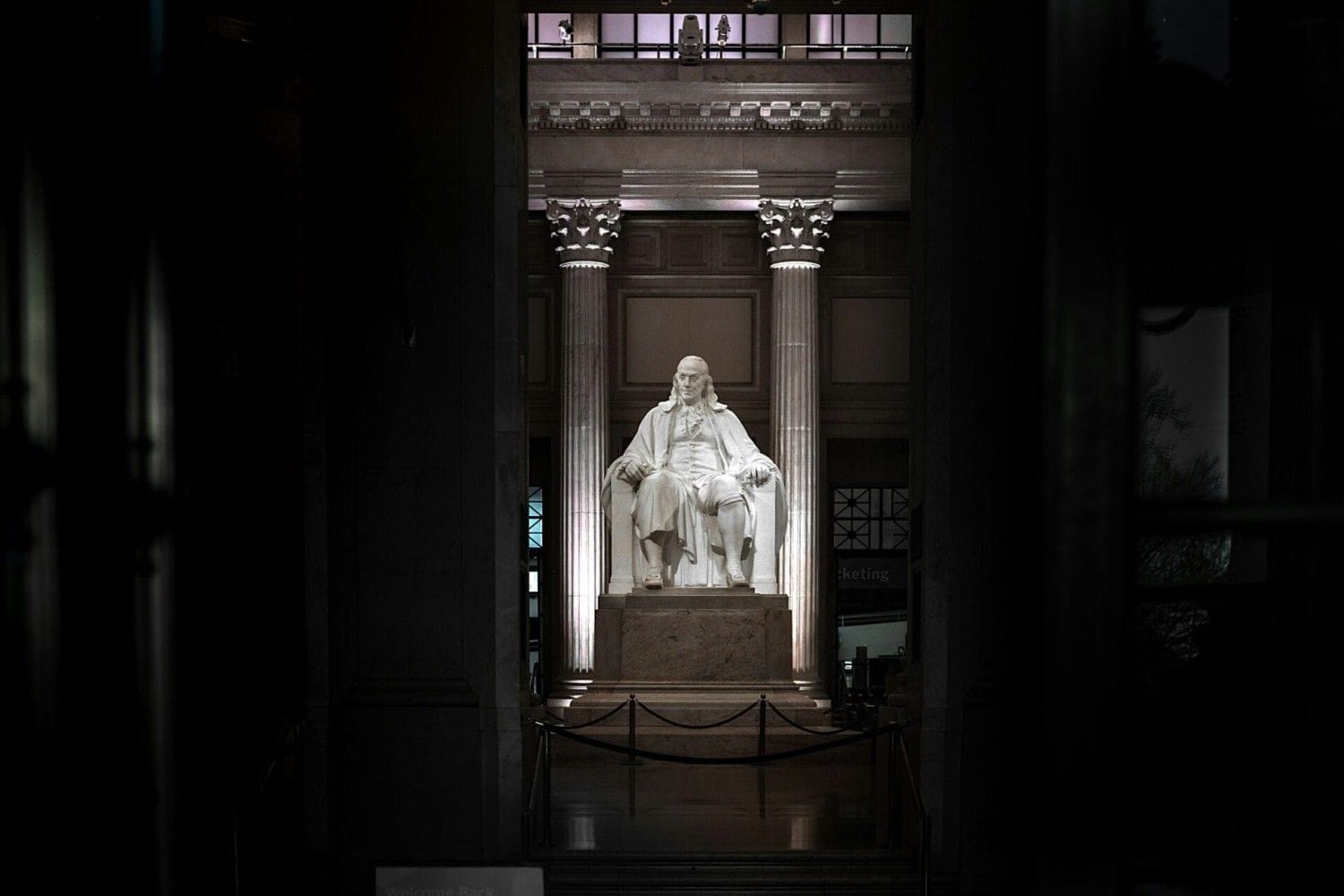Benjamin Franklin's Image on the U.S. Currency
Benjamin Franklin is one of the most influential figures in American history, and his legacy as a Founding Father of the United States is cemented not only through his direct involvement in shaping the nation’s early political and diplomatic landscape but also through his pioneering contributions in science, philosophy, and civic life. As described in his Autobiography, Franklin was not only a revolutionary figure but also a polymath whose actions and ideas played a central role in the formation of the United States. His work as a diplomat, inventor, philosopher, and statesman has made him a symbol of American ingenuity and vision, and his image on U.S. currency reflects the lasting impact of his multifaceted contributions to the country.
Franklin’s Role in the American Revolution
Benjamin Franklin’s political influence in the early stages of the American Revolution was profound. His contributions to securing France’s support during the Revolutionary War were crucial. Franklin was sent to Paris as a diplomat, where he played an instrumental role in negotiating the Treaty of Paris (1783), which ended the Revolutionary War and recognized the independence of the United States. His ability to build diplomatic relations and secure vital foreign alliances was essential in securing America’s victory over Great Britain.
Franklin’s role in the drafting of the Declaration of Independence further solidified his place as a Founding Father. Though he was not the principal author, he was a signatory and an important advocate for American independence. His wisdom and pragmatic approach to governance, as reflected in his writings and personal philosophy, provided guidance to the leaders of the revolution.
Franklin’s Contributions to the Constitution
Beyond his role in the Revolution, Franklin was deeply involved in the establishment of the American republic. At the age of 81, he was the oldest delegate at the Constitutional Convention in 1787. While Franklin was not the primary architect of the Constitution, his diplomatic expertise and political insight proved invaluable in facilitating compromise among the diverse factions that attended the convention. Franklin’s call for unity and his belief in a balanced system of government were key in shaping the document that would become the backbone of American democracy.
His influence was not limited to formal politics; his philosophical ideas on liberty, individual rights, and governance greatly impacted the development of the nation’s democratic ideals. Franklin’s vision of a government that prioritized the common good and ensured freedoms for all citizens was central to the ideals that formed the foundation of the United States.
Franklin’s Contributions to Civic Life and Innovation
In addition to his political and diplomatic contributions, Franklin was also a visionary thinker and an innovator whose ideas laid the groundwork for many of the country’s institutions. He founded the first public library in America, the American Philosophical Society, and the first fire department in Philadelphia. These initiatives reflect his belief in the importance of education, community, and public service—values that became central to American society.

Franklin was also a leading figure in the Enlightenment, and his practical inventions, such as the Franklin stove and bifocal glasses, showcased his ingenuity and commitment to improving everyday life. His work in science, particularly his experiments with electricity, further cemented his reputation as a man ahead of his time. Franklin’s philosophy, which emphasized self-improvement, civic duty, and the pursuit of knowledge, greatly shaped the emerging American identity.
Franklin on U.S. Currency
Benjamin Franklin’s enduring legacy is reflected in his image being featured on the U.S. $100 bill. His presence on the currency is a symbol of his immeasurable impact on American society, both in the revolutionary period and in the centuries that followed. The $100 bill, one of the most circulated and recognized pieces of U.S. currency, is a fitting tribute to Franklin’s contributions to the United States.

Franklin’s likeness on the bill represents more than just his financial acumen; it symbolizes his embodiment of the American spirit. His reputation as a self-made man, a diplomat who secured independence for the U.S., and a civic-minded philosopher resonates with the core ideals of America. Franklin’s inclusion on the bill acknowledges his wide-ranging contributions to the nation’s formation, governance, and civic life. His image is not just of a man who contributed to the American Revolution, but of a man who influenced the country’s development in countless other ways, making him a true symbol of American values.


